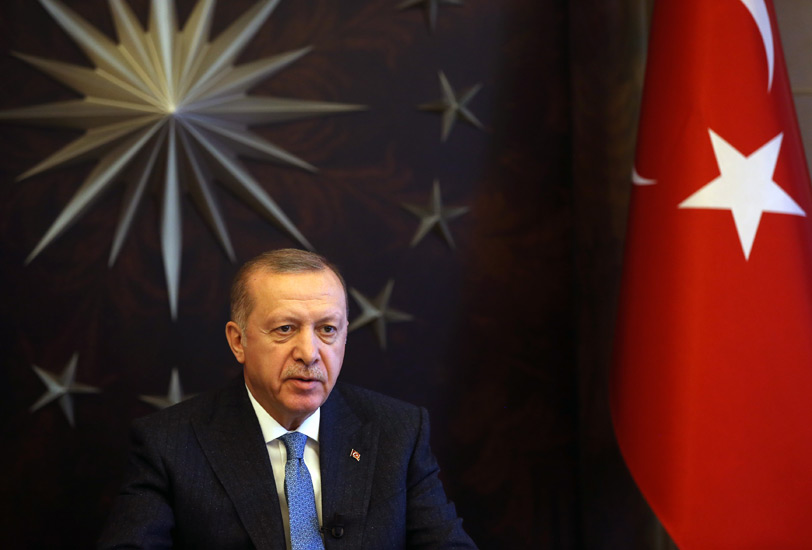The Turkish authorities have extended their partial ban on flights to now cover all overseas destinations. The decision to ground all international flights to contain the coronavirus pandemic was announced by President Recep Tayyip Erdoğan on Friday, 27 March.
The president gave the news at a press conference after meeting with the country’s leading medical and scientific experts to discuss Turkey’s fight against COVID-19.
Along with the international flight ban, the president also announced a number of additional measures to limit the spread of the virus. These include social distancing on public transport, and that newly drafted soldiers will undergo a 14-day quarantine before taking up their military duties.
President Erdoğan also called on Turkey’s 83 million citizens to place themselves under “voluntary quarantine”, and to only leave their homes for essential needs and emergencies.
Turkey’s Health Minister Fahrettin Koca gave updated figures for COVID-19 cases on Friday. Infection rates in the country had reached 5,698, while the death toll from the virus stood at 92.
The Turkish authorities had initiated its suspension of international flights with China in January. As the virus spread abroad, Turkey’s flight ban was extended to Iran, Iraq, South Korea and Italy on 01 March. A week later, it was extended to cover nine European states, including France and Germany. Flights to the UK, Ireland, Egypt, Saudi Arabia, Switzerland and UAE were stopped on 17 March.
UK travel advice to Britons in Turkey & abroad
The UK’s Foreign and Commonwealth Office has updated its travel advice to those travelling to Turkey and other destinations. It advises that: 
“Passengers (except Turkish nationals or residents of Turkey) who have transited through or have been in the UK or other countries on which the Turkish authorities have imposed a direct flight ban in the past 14 days are not allowed to transit or enter Turkey.”
For those currently in Turkey, the FCO reminds them that:
“There is a curfew in place for those aged over 65 or who have a chronic medical condition. People who must travel or leave home may do so after requesting official permission via the designated phone lines; 112, 155, and 156.”
A general notice to British nationals calls for them to avoid “all but essential international travel”, as “any country or area may restrict travel without notice.”
Many commercial airlines have already suspended or severely curtailed their international flights, with multiple airports forced to close by domestic authorities, preventing flights from arriving or leaving.





